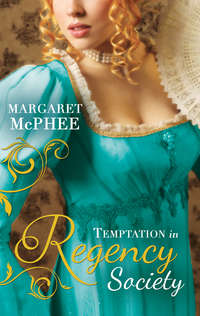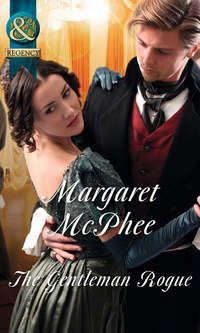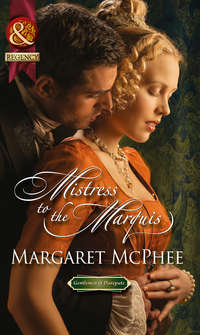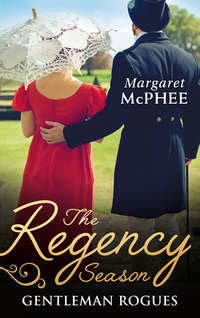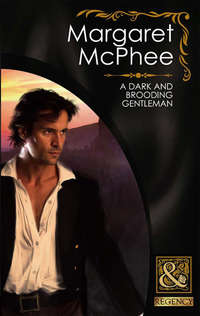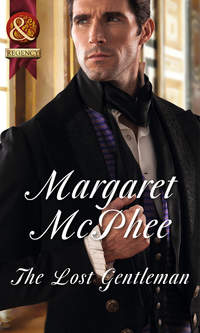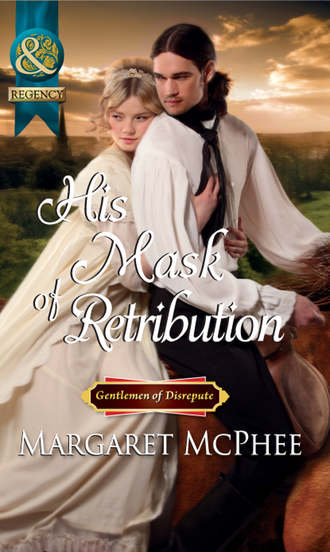
Полная версия
His Mask of Retribution
Callerton was waiting exactly as planned, hidden from view within the derelict farm buildings on the outskirts of the town. The doors of the great barn were wide open and Knight rode straight inside, slid Marianne Winslow down to his friend and servant, and dismounted.
The highwayman’s masked accomplice placed Marianne inside a dark coach that waited within the barn, then assisted the highwayman in harnessing his horse as part of the team. Her throat was so dry that it stuck together, making it difficult to swallow. Within her chest her heart beat in a frenzy and every muscle in her body was racked tight with tension. The fear was so great that her breath shook from it and her palms were clammy. She squeezed her eyes shut and slowed her breaths, counting them to control the panic. When she looked again, the men had a flask and a rag and were washing the distinctive white flare from the horse’s muzzle. They were focused, hurrying, intent on their task. Marianne gathered the remnants of her courage. A deep breath in and out, then she curled her fingers round the door handle.
Her blood was still rushing, her heart beating loud as a big bass drum. The door opened without a sound, letting her slip noiselessly to the ground and edge towards the rear of the coach. Once there she stood, her back pressed against the empty boot, while her eyes scanned desperately for an escape route or hiding place. She held her breath, ragged and loud as it had become, fearing they would hear it, fearing they would notice at any moment that she was gone.
Time seemed to slow and in that tiny moment of waiting every sense seemed sharpened and more intense. She could smell hay and horse sweat and leather tack, and the damp scent of autumn and brambles. She could hear the jangle of the harness and the shuffle of hooves as the horses grew impatient. Against her face the air of the shadowed empty barn was cool. There was nowhere to hide: not one hay bale, not one cart. Her heart sank. She knew that she was going to have to take her chance. Taking a deep breath and lifting her skirt clear of her ankles, she eyed the great, wide, opened barn doors. Outside the sky was blue and clear, the sun lighting the heath land as if in invitation. She hesitated no longer, but ran for her life.
Three paces and there was a yell and a sudden swift movement and Marianne gasped aloud as strong arms enclosed her. Within a second the highwayman had her backed against the coach door, both wrists secured behind her back, as his eyes glowered down into her own.
‘Not a good idea, Lady Marianne,’ he breathed, in that harsh half-whisper of his.
He was so close that with every breath she took she could feel the brush of her bodice against his chest, so close that she could smell the scent of the sandalwood soap he had used to wash with. She had not realised that he was so very tall, or how much he would dwarf her. She felt overwhelmed, by him, by shock, by fear. For a moment she could not speak, could not even breathe as she stared up into his eyes. Her heart was pounding, her mouth dry. She forced herself to think of what he had done to her father, forced her anger to override her fear.
‘Scoundrel!’ she hissed. ‘What did you expect? That I would just sit there waiting for you to come and beat me as you beat my father?’
‘I do not beat women.’ His eyes were hard and angry as they held hers.
‘Only old men who have done you no wrong.’
‘You know nothing of the matter, Lady Marianne.’
‘You did not need to hit him! You did not need to make him bleed!’
‘Misbourne got off lightly.’
‘What has my father ever done to warrant such treatment?’
‘Your father is a thief and a murderer.’
She shook her head in disbelief, stunned by the declaration. ‘And you are a madman, or drunk on wickedness.’
‘I am as sane and sober as you are, my lady.’
His gaze bore down into hers and in the shadowed light of the barn his eyes were the colour of her father’s best tawny port and clear and lucid as he claimed, and when she looked into them she could not prevent the shiver that ran through her. He was still holding her in place against the door, her wrists secured in his grip, his body too close to hers. There was an aura of such danger surrounding them she could scarcely breathe.
‘It is you who is the thief. And, for all I know, a murderer too.’
He stepped closer, his eyes intent on hers, and she saw the flare of fury in them. ‘It is true I have thieved, but as for murder? When your father grovelled in the dirt before me I could have done it, Lady Marianne, so very easily. I confess I was tempted.’ His hushed voice was so harsh and so filled with anger that she caught her breath to hear it. ‘An eye for an eye is what the Bible says. But murder…’ He shook his head. ‘That is your father’s game, not mine. I’ll settle to see him brought to justice in a hangman’s noose.’ The force of his words flayed her. Then, as suddenly as he had captured her, he released her, stepping back to open up a space between them.
‘My quarrel is with your father. You need have no fear. I shall not hurt you.’
She moved away from the coach and rubbed her wrists—not because he had hurt her, but because they still tingled from the feel of his skin against hers. ‘Then what are you going to do to me?’ Her heart was thumping fast and hard. Her lips were stiff with fear but she asked the question even though she was so very afraid to hear the answer. She waited with legs that trembled, but she did not let herself look away from that razing gaze.
The silence seemed to stretch between them and tension knotted her stomach.
‘Keep you until your father gives me what I want. He has something belonging to me. Now I have something belonging to him. It is a fair exchange.’
‘And what is it that you want?’ The words were little more than a whisper. She remembered too clearly her father’s reaction when he had read the highwayman’s demand and the shock and worry she had felt to see it.
‘Too many questions, my lady. We can delay no longer.’ Not once did his gaze shift from hers and she quivered from the intensity of it. She knew what he was and, despite his reassurance, what he could do to her.
‘You shall not get away with this.’
‘Indeed?’ And there was such arrogant certainty in that one word.
‘You are despicable, sir.’
‘I am what your father has made me, Lady Marianne. Pray to God that you never find out the truth of it!’ He opened the door and gestured her into the coach.
Marianne had no option but to hold her head high and climb inside.
She had her father’s eyes. Black as midnight, wary, and watching him with that same contempt Misbourne used on those around him. Little wonder she was the apple of her father’s eye. Little wonder he guarded her as if his pampered daughter were as precious as the crown jewels. In the rest of her face she favoured her mother. Her shapely lips pressed firm and her small nostrils were flared. His gaze swept over the blonde tendrils that framed her face, so soft and pale beside the strong darkness of her eyes. But the eyes, it was said, were windows to the soul. He wondered whether Marianne Winslow’s soul was as black as her father’s. He pulled the curtains closed and the stiffening of the girl’s body, the sudden fear in her face, spurred a twinge of irritation within him. As if he would ravish her, as if he would even touch her. Misbourne was the blackguard in this, not him.
‘I have told you that you have nothing to fear from me,’ he snapped. ‘Given your propensity for escape, you will understand the need for preventative measures.’ He produced a short length of rope.
‘And if I refuse?’ She raised her chin a notch.
‘You have no choice in the matter, my lady.’
She stared at him as if he were the devil incarnate. ‘You are a villain.’ Her voice was high, her face pale.
‘Yes, I am,’ he said. ‘And you had best not forget it, Lady Marianne, especially if you have any idea of resisting me.’
Her eyes widened, but she did not suffer an attack of the vapours or hysteria as he had expected of Misbourne’s coddled daughter. Indeed, she did not cry or plead or scream. Everything about her was contained and careful. She just eyed him with a quiet defiance and more courage than many a man as he bound her wrists behind her back, checking that the rope was not too tight.
He turned his attention away from the woman and slid open the dark wooden panel beneath his seat to remove the small travelling bag from within. He took his time, yet his actions were slick and smooth, well practised. From the bag he took a pair of highly polished riding boots, a new hat and a pair of the finest black-leather gloves. Then he removed the pistols from his pockets, checked they were safe and laid them at the bottom of the bag. He shrugged out of his greatcoat, rolled it into a ball and thrust it on top of the pistols. The tricorn hat, his shabby gloves and the old boots followed, before the bag was stowed out of sight once more. He glanced up to find Marianne watching him. Their eyes met through the dim grey light and that same frisson of awareness rippled through him, just as it had before. And the thought that he could feel any measure of attraction towards Misbourne’s daughter sent anger licking right through him.
She turned her face away, fixing her gaze on the dark curtains drawn across the window.
He kept his eyes on her as he slid his feet into the smart black boots, scraped his hair back into a low tidy queue at the back of his head and tied it in place with a black ribbon from the pocket of his tailcoat. But the woman was not stupid; she did not look at him again. Not once. Not through the little country towns of Brentford or Hammersmith or even the village of Kensington. He slipped his hat and gloves in place and the rest of the journey continued in silence, the tension between them seeming to wind tighter with every mile closer they travelled through London. Eventually, Callerton thumped the carriage body and Knight knew they were nearing St Giles Rookery. He looked at Misbourne’s daughter.
‘Time to move, Lady Marianne.’
She glanced round at him then. A small steady movement as controlled as everything else about her, yet he could sense the sudden escalation of distrust and see the flash of fear in those large dark eyes. He felt his conscience stir at what he was doing, but her gaze flitted momentarily away and when she looked back at him it was as if she had drawn a veil across her eyes and the only expression on her face was one of contempt. She looked so like Misbourne that any doubts he might have harboured vanished instantly.
Knight reached for her arm and moved to execute the next stage of his plan.
In the study of his town house in Leicester Square, the Earl of Misbourne lay on a daybed covered by a cream woollen blanket and listened to the carriage sounds from the street outside.
‘He is gone.’ Francis Winslow—or Viscount Linwood, as he was otherwise known—Misbourne’s son and heir, stood by the window and watched Pickering’s carriage until it turned the corner and headed away from the square. ‘Do you think he believed us?’ Linwood’s eyes were as dark and venomous as his father’s as he came to stand by the daybed.
Misbourne gave a nod.
‘It will be more difficult tomorrow when he returns and wishes to visit his betrothed. Although the story of our “carriage crash” being all over tomorrow’s newspapers should help. I’ve ensured the news is already being whispered in the clubs.’ His son was good at taking care of such details, but Misbourne offered no thanks; his mind was on other matters.
He slipped the crumpled sheet of paper from the pocket of his dressing gown and smoothed it out that he might stare at it again. The hand was bold, the words, few as they were, angular and angry. A place. A year. And the highwayman’s demand.
1795, Hounslow Heath
The document that was taken—in exchange for your daughter.
He was thinking, and thinking hard. There was only one other person that knew of the document and Misbourne had eyes and ears stationed in every main port in the south watching for his return. It was possible that Rotherham had evaded detection, that he was back in England already. Misbourne’s blood ran cold at the thought and he shivered as if someone had walked over his grave.
‘Father?’ Linwood was staring down into his face and he could see the concern and agitation in the eyes that were so like his own.
‘Let me think,’ Misbourne snapped. It made no sense. Whatever else Rotherham was, he was a man of his word and one who liked everything done exactly to the letter. There was still time left before he would come. Time enough for the wedding between Marianne and Pickering.
Misbourne lounged back against the pillows of his bed and read the words again. The criminal fraternity had a way of talking even when they’d been sworn to silence. A boast in the tap room of a public house, a whisper in the ear of the buxom wench beneath them. Thank God for illiteracy. He wondered how much the highwayman could possibly know.
‘You are not well, Father. Let me deal with this in your stead,’ said Linwood.
‘Don’t fuss so, boy, I tell you I’m fine.’ An idea was taking shape in Misbourne’s mind.
‘And I disagree,’ said Linwood without a flicker of emotion.
‘You always were a stubborn little sod.’
‘Chip off the old block, so they say.’ Linwood held his gaze.
Misbourne gave a smile and shook his head. ‘And they’re not wrong.’
‘Then let us go to the brotherhood,’ said Linwood without returning the smile, speaking of the secret society of which both he and his father were members. ‘Seek their assistance in this.’
‘No!’
‘It’s different now that Hunter is the Master. He’ll help us and—’
‘I said, no, damn you, boy!’ Misbourne felt a stirring of panic and knew he had to convince his son. ‘We manage this ourselves. This is family business; it does not go out with this room, no matter what else you might think.’
Linwood’s face was angry and defiant.
‘I will not risk Marianne’s reputation. I will not risk your sister’s safety. Do you understand?’
Linwood gave a sullen nod. ‘What is this letter from fifteen years ago that he wants?’ It was the question that Misbourne most dreaded to hear.
‘None of your damned business.’
‘Will you give it to him?’
There was a pause before Misbourne replied, ‘Yes, I’ll give it to him.’ His scowl deepened and he pinched at the bridge of his nose, a sure sign that he was trying to control his temper. ‘The day progresses and still we hear nothing.’
‘We will.’
‘What the hell is taking him so long?’ Misbourne’s upper lip curled in a snarl.
‘He means to make sure we take him seriously—and no doubt he wants to twist the knife a little. Whoever he is, he certainly does not like you.’
‘And, by God, I’ll give him good reason not to! By the time I’ve finished with him he won’t know what he likes and what he doesn’t.’ Misbourne was only slightly mollified by the thought.
A knock sounded at the study door. The butler entered, holding a silver salver with a single letter laid upon it.
‘Just delivered, m’lord, by an urchin.’
‘Does the wretch wait for a reply?’
‘No, m’lord. The boy ran off.’
Misbourne saw the servant’s gaze take in his tender swollen cheekbone and felt a spurt of annoyance. He took the letter and dismissed the man with a flick of his fingers. The seal broke easily, but his hands were trembling with impatience and fear as he unfolded the letter and read its content before passing the note to his son.
‘Aldgate High Street where it meets Fen-church and Leadenhall,’ said Linwood. ‘He’s chosen well. It’s a busy junction at the best of times; it will be pandemonium there at three o’clock. And with its links to so many roads and alleys it will be difficult to cover the whole area.’
‘Difficult, but not impossible,’ said Misbourne. ‘Once Marianne is safe…’
‘Once Marianne is safe, we’ll hunt him down like the villain that he is,’ finished his son.
From the rooms above came the sound of a baby crying and a man and woman arguing, shouting and swearing at full volume. An old man was singing a drunken bawdy song and outside, in the street, a dog was barking. Marianne sat very still on the single wooden chair and waited, just as she had waited through all the previous hours. It was the sole piece of furniture in the room. Her eyes ranged again over the pile of filthy covers in the corner that served as a bed. Mould grew on the walls and the floorboards were bare. Two buckets sat behind the door—one held water, and the other was so stained with filth that she did not want to contemplate its use. There was no coal on the fire, no pots or pans. Not so much as a cup to drink from. The dirt encrusted upon the windows made the light hazy and hid her view of the rookery beyond.
‘Who lives here?’ she asked. The filthy bed of rags in the corner gave lie to her denial that anyone could live in such squalor.
‘A family with five children,’ replied the highwayman’s accomplice from behind his pale mask.
‘All in this one room?’
‘Aye, lass. But he’ll pay them more than they get in a year just for the use of this room for a few hours. He helps where he can.’
‘I did not know such poverty existed.’ She had never seen a place the like of this, with its maze of streets and alleyways crowded with ramshackle houses. ‘The children are so ragged and thin, with eyes that seem too old for their faces, and their mothers…’ She thought of the women with their rotten teeth and low, revealing bodices, and how they had fanned their skirts high when they had seen the highwayman and his accomplice.
‘For some, it is the only way they can feed their bairns.’
She was horrified to learn it.
The light was a dull grey and the air was so ripe with rotting rubbish—and worse—that she wondered if she would ever clear the stench of it from her nose. Something small and brown appeared from beneath the mound of blankets and scuttled across the floor.
‘It’ll not be much longer,’ the accomplice assured her. ‘He’ll be here soon and then we’ll have you back with your pa.’
‘You seem to be a kind man. Why are you helping that villain?’
‘He’s not the villain in any of this, m’lady, for all that you think him. And I’m helping him because he’s a good man and he fought his way across a battlefield to save my life. Don’t judge him so harshly. He’s only doing what he must, to set his demons to rest.’
The words were spoken with such sincerity that she could not doubt that the accomplice believed them. And she thought again of the tall dark masked man with amber eyes that made her shiver. ‘Why does that involve my father?’
But the man shook his head. ‘I’ve already said too much. Pardon me, my lady, but that is not my question to answer.’
When the clock struck three, Knight was nowhere near Aldgate High Street. He was drinking champagne in the bow window of White’s Gentleman’s Club with Bullford, Devlin, Razeby and Fallingham, and making sure the ton of London knew that he was there. He knew the boy he had paid would wait for Misbourne to arrive before passing him the note.
‘What d’you make of the story of Misbourne’s carriage crash?’ Bullford was asking.
‘Maybe Pickering’s getting cold feet,’ said Devlin. ‘After all, she’s hardly good ton at the minute. It will take a while longer before Misbourne lives down the embarrassment over Arlesford. And it’s not as if Pickering needs the money.’
‘Lucky escape for little Lady Marianne, if you ask me.’ Fallingham swigged at his champagne. ‘Pickering’s so old that he’s in danger of dying on the job, if you know what I mean.’
All the men except Knight laughed.
‘What do you think, Knight?’ asked Bullford, draining his glass.
He should not give a damn about Marianne Winslow, but he did not wish to think about her lying beneath Pickering. ‘I think it’s time we opened another bottle of champagne,’ he said. ‘I’ve got better things to do with the rest of my day.’ Callerton should have the girl well in place by now.
‘Would that involve keeping a certain widow satisfied?’ Devlin asked.
Knight smiled, but said nothing.
‘Lucky bugger!’ said Razeby. The rest of the men chortled in appreciation.
‘Maybe you should be laying off the champers in preparation for tomorrow’s four-in-hand race. Do you think you’ll beat Hawick?’ asked Bullford.
‘Why? Are you thinking of wagering against me?’ drawled Knight. His eyes slid across the room to the grandfather clock in the corner.
‘Wouldn’t dream of it, old man,’ said Bullford.
‘We like to make money, not lose it,’ agreed Fallingham.
The champagne arrived. ‘A monkey on it that no one can down the bottle in one,’ said Devlin.
‘Prepare to pay up,’ said Fallingham, lifting the bottle and placing it to his lips. He began to drink while his friends stamped their feet and chanted their support around him.
Knight waited until another two bottles of champagne had been opened before he slipped away.
‘If this is a direction to yet another street…’ warned Misbourne, grabbing the letter from beneath the apple cart in Cutler Street. ‘This is the fourth note. He’s had us on a wild goose chase all over London. The villain’s intent on making fools of us.’
‘He’s intent on making it as hard as possible for us to track him…and Marianne,’ corrected Linwood.
‘Give the document to the boy by the organ grinder. Lady Marianne will be delivered to your home.’ Misbourne read the words aloud. ‘Are the men still following us?’ he added beneath his breath to Linwood, who gave a subtle nod and lifted his wolf’s-head walking cane from where it rested on the ground.
‘Then let us hope the boy leads them straight to the villain’s lair.’
‘You should let me go,’ said Linwood.
‘Having you running through the streets will attract too much attention. No, it is better this way.’ Misbourne slipped a folded and sealed document from his pocket and walked over to the fair-haired boy by the organ grinder. The boy saw him coming and Misbourne understood from the expression on his face that the boy knew what to expect. He took the document without a word and disappeared into the crowded street. And the two men lounging in the mouth of the alleyway behind Misbourne slipped into the crowd after him.
Knight took the document from the boy. ‘You’re sure you lost them?’
‘Easy as pie. I passed it to Jim, who passed it to Dodger, who passed it to me. We led ‘em a merry dance all the way down to the dockland just as you said and left ‘em there.’
‘Good.’ Knight slipped the coins into the boy’s grubby hand.
‘Pleasure doing business with you, gov, as always.’ And the boy disappeared again.
Knight’s heart was thumping hard. The folded paper was fragile and yellowed with age. He could see the shadow of writing shining through its thinness. His mouth dried with anticipation. The question had haunted him every day of the last fifteen years—now he held the answer in his hands. He took a breath and carefully unfolded the document.
His eyes scanned the faded ink. The document was dated for June 1795 and was a letter from a senior government minister of the time to Misbourne. Several sensitive topics were discussed and it was clear, from both the tone and the detail revealed, that the two men were on friendly terms. It was a letter that many might have paid to read, the stuff of petty scandal, but Knight crushed it within his hand as a red mist descended before him.
Marianne heard the footsteps outside in the alleyway before the highwayman’s accomplice did. The highwayman strode into the room wearing the same long dark coat he had worn upon Hounslow Heath, but his hat was the smart beaver she had watched him don in the coach, and beneath the coat she caught a glimpse of the fine white shirt and dark waistcoat. The mask tied around his face had moulded to his features and his boots left a trail of footsteps through the dirt of the floor.


